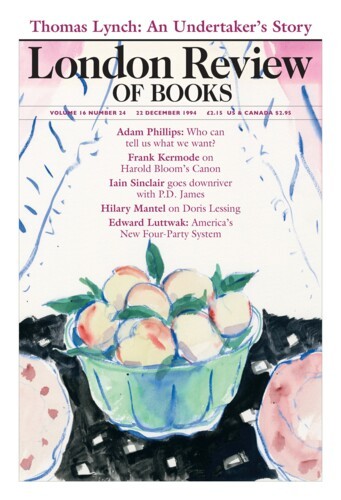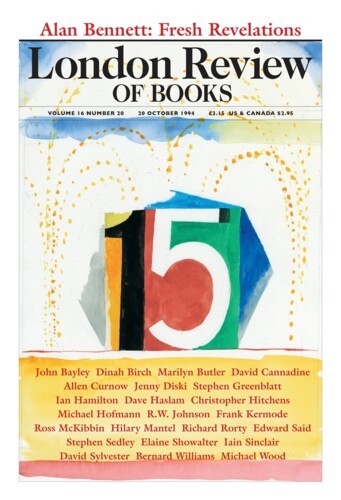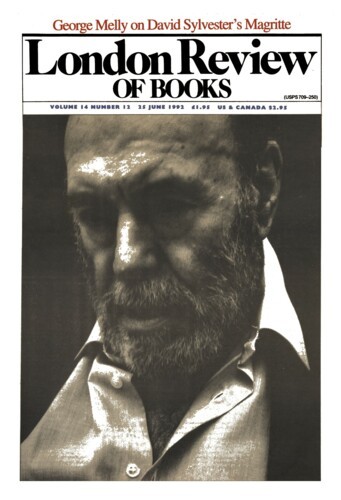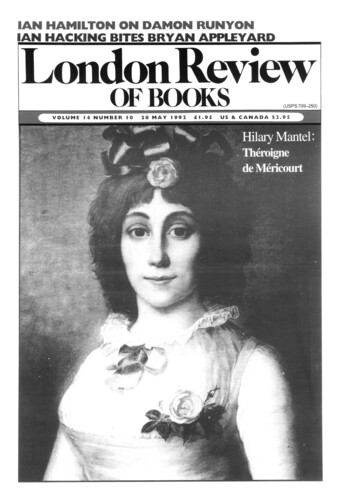Pointing Out the Defects
Hilary Mantel, 22 December 1994
Perhaps it is the timing of her birth which has refined her sense of scale, has made her able to see how the single ant works and worries in the social heap. ‘That was important,’ Doris Lessing says: to be born in 1919, when 29 million people died in the influenza pandemic. Important, too, the blue marks left on her face by the forceps. She was a child of damage, ‘one of the walking wounded’.





